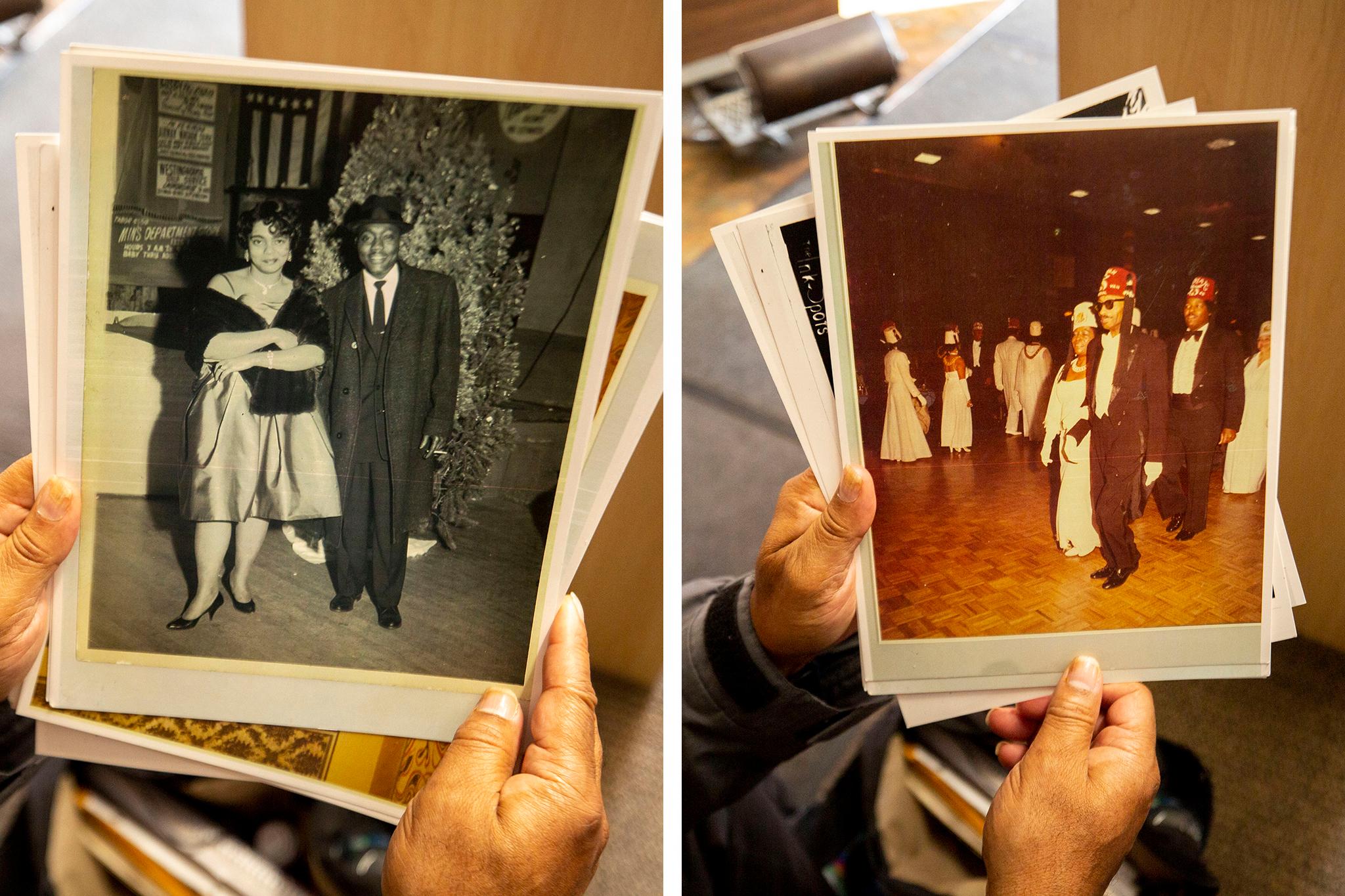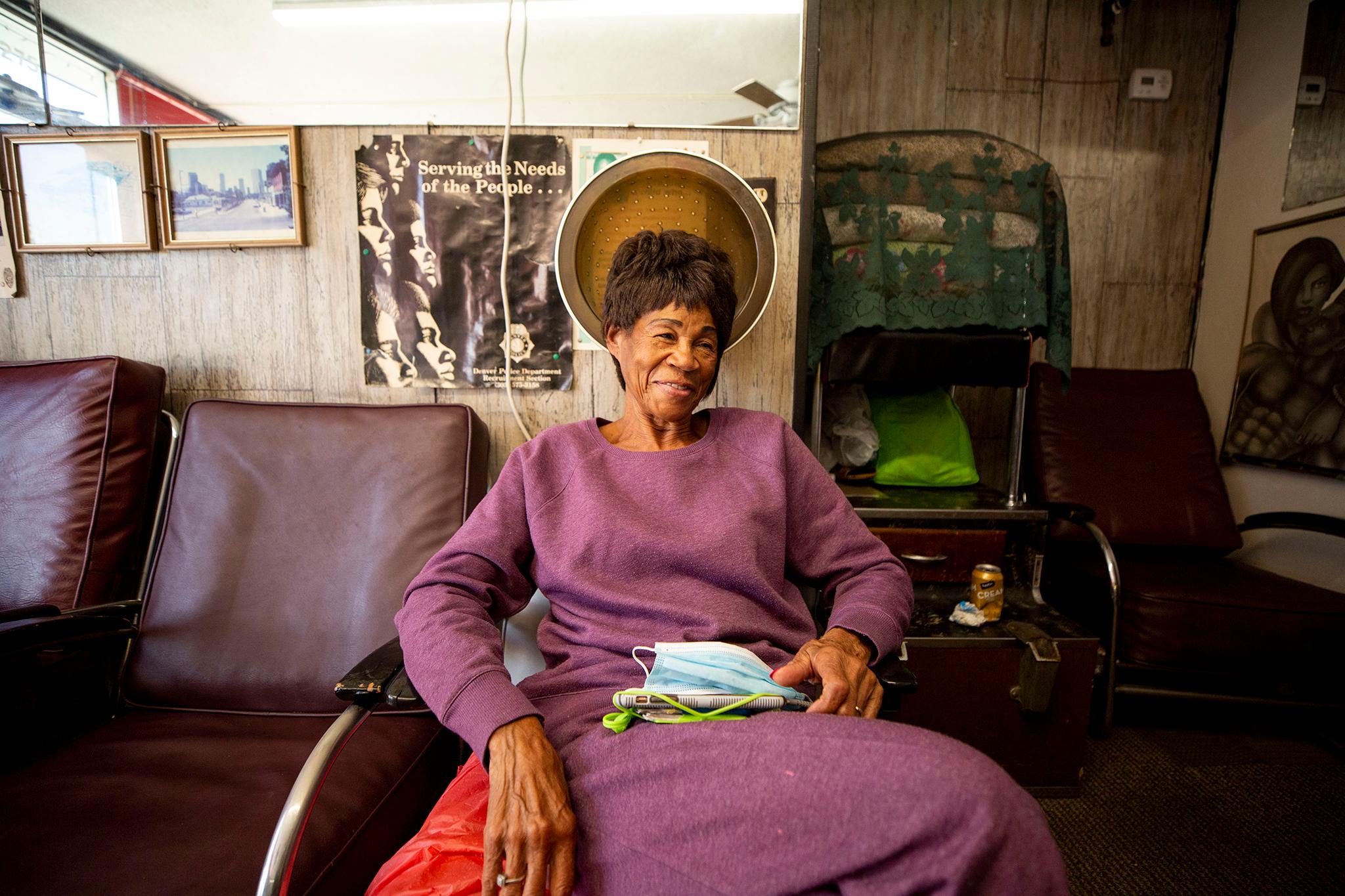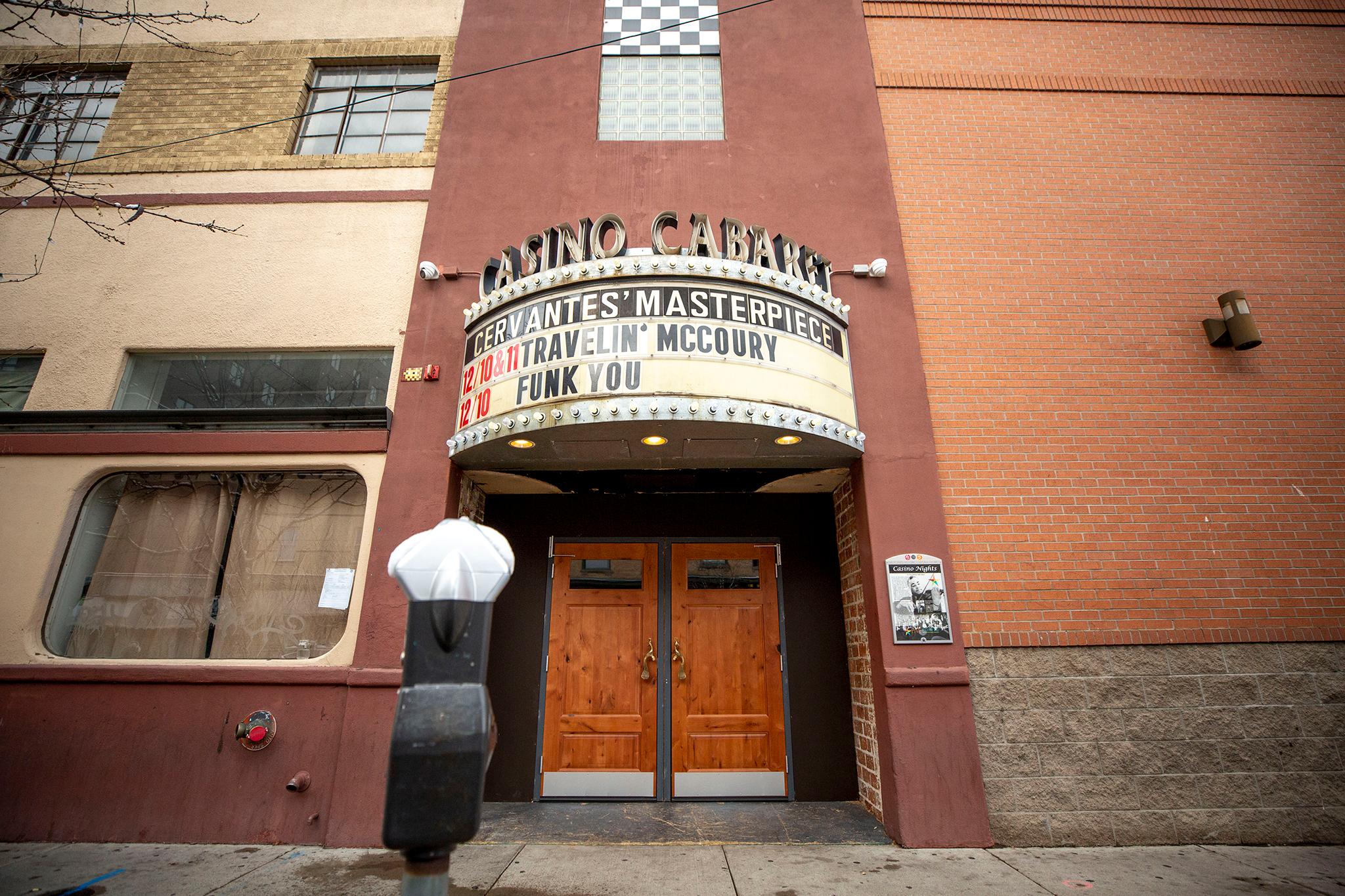"Every door has a story," said Denver history tour guide and Five Points champion Charles Foster.
For over a year, he's fought for the door at the Casino Cabaret building at 2637 Welton Street. That's where Cervantes' Masterpiece Ballroom and Other Side has brought a mix of electronic, jam, bluegrass and hip-hop music to Five Points since 2003.
Back in its heyday when it was still a jazz club, Muddy Waters, James Brown, Count Basie and many more played the Casino Cabaret, and Jack Kerouac and Neal Cassady likely drank there, too.
That history, said Foster, must be saved.
He worries that older former Five Points residents making pilgrimages to Welton Street might not recognize their old stomping grounds. For those dealing with memory issues including dementia, being able to see something familiar -- even if it's as simple as a doorway -- helps them stay grounded in reality.
On an early December afternoon, Foster drove from his Golden home to Franklin Stiger Afro Styling Barber Shop, a 50-year-old Five Points business, to meet co-owner Maedella Stiger. She grew up in the neighborhood in the '50s and '60s, back when it was the center of Denver's Black cultural life. Stiger, too, now lives in the suburbs.

Both, who have deep roots and memories in Five Points, are on a crusade to convince the owners of Cervantes to restore the original lead-glass and wooden doorway to their historic building which still boasts the Casino Cabaret sign. Stiger and Foster also want the owners to work with the community to preserve the venue's historic architecture and to allow it to become a contributing building, a landmark to be preserved in its entirety in the Five Points Historic Cultural District.
Stiger, who proudly packs heat on her neighborhood strolls, remembered going for a walk in February 2020 and seeing the demolition of the glorious Casino Cabaret door. She asked what was going on. The venue's operation manager and co-owner since 2009, Duncan Goodman, told her the door would be reinstalled, she recalled.
Later, she was appalled and felt deceived when the original design was replaced with three metal doors.
Soon after, Stiger and Foster started complaining about the renovation.
They called Denver Landmark Preservation and demanded the city agency take action against Cervantes. When the metal doors stayed up for well over a year, Foster and Stiger began to collect signatures to pressure the city to force the venue to restore the architecture and preserve its history.
"The city heard from neighbors who were unhappy with the change, and investigated," Landmark Preservation spokesperson Amanda Weston wrote Denverite in an email. "The city found that Cervantes had not obtained permits or gone through the required design review process when replacing the doors. Design review by Denver's Landmark Preservation team is a required step for buildings in the Five Points Historic Cultural District making changes to their exterior."
While the business could have been fined, it wasn't. Instead, Cervantes cooperated with Landmark Preservation -- but not fast enough or with enough community input to satisfy Foster.
Showing that the community backs his vision, Foster held up a stack of petitions signed by hundreds including Mayor Michael Hancock and former Five Points residents now scattered across the country who want the door restored.
To this day, Foster's still collecting signatures.
He thumbs through a stack of black and white photos of the Daughters of Isis and the Syrian Temple -- Black Shriners groups who held events at the Casino Cabaret. Members smile, posing in Fez hats. In other pictures, people march in Juneteenth parades or hang out on the streets. Back then, Welton Street boasted more than 30 restaurants and nightclubs.
"These streets was filled just like Vegas," Stiger said.

Foster also flipped through a notebook detailing every conversation he's had with the owners of Cervantes and Denver Landmark Preservation to try to convince them to restore the doorway to its original glory and preserve the building's history. He's keeping receipts.
The city eventually pushed Cervantes to take down the metal doors and replace them with a Landmark Preservation-approved design: a wooden door with a glass panel at the top that went up in recent weeks. The new doorway would be "closer to the historic context of the neighborhood and echoes the building's legacy," Weston explained.
Foster and Stiger disagree. New materials, they argue, are cheaper than what used to be there. The glass may be irreplaceable.

"These ugly wooden doors he's placed on that building, I think it looks so bad," said Foster. "I really do. I don't agree with it."
Goodman told Denverite in an email that the work on the door is far from finished and pledged the glass would be restored. "It's being completed in phases. We're working with Landmark Preservation every step of the way to ensure that we're meeting all guidelines. This project is top priority and will be completed as soon as possible.
Foster said Goodman needs to halt the work until Cervantes has a conversation with community elders, including Stiger. The three plan to meet in mid-December. When they do get together, they will have a lot to talk about, from the door itself to a demand that the Cervantes' owners support the process to make the Casino Cabaret a contributing building -- which would require the property owner's permission.
That's one of the reasons he's asking Goodman to apply for the Casino Cabaret to become a full contributing building. Foster wants the venue to go the extra step of consulting not just with Landmark Preservation but with neighborhood leaders and business owners before making any structural changes.

While Stiger is glad to welcome newcomers of all races to Five Points, she hopes that when people open new businesses and try to make changes to the look and feel of the place, they also ask for permission from the community -- and not just people who live there now but those who lived there for decades and have left.
"I don't care about a person moving into the community," said Stiger. "But when you move in here, don't try to turn things around. Leave it like it is. Contact people that have been here before you start tearing stuff up."
Of course, it's not just the doorway that's changed. Old brick buildings have given way to massive apartment complexes. The neighborhood has seen massive displacement, and white people have flooded into the community. Yoga studios and dispensaries have replaced longtime clubs and restaurants. Scooters zip up the sidewalks. People don't hang out in the streets like they used to.
With newcomers, there has also been an uptick in vandalism and trash on the sidewalks, said Stiger. She would like to see Cervantes hire more security to address the increase in tagging and littering.
"We didn't have that writing on the walls when it was nothing but blacks down here," Stiger said. "You didn't have gum on the sidewalks down here. You might have seen blacks get drunk and sit in a doorway."
"Gentrification changed a lot of this," added Foster. "This is not an issue of who can't come down and who can. It's an issue of when you come down here, respect it and keep it in its original form and fashion."











